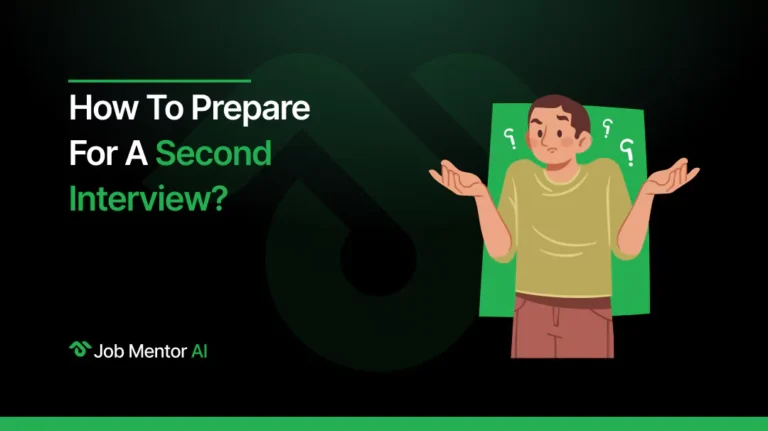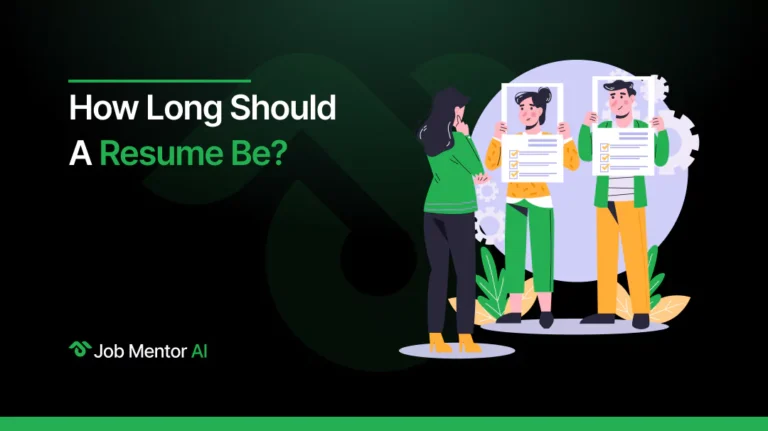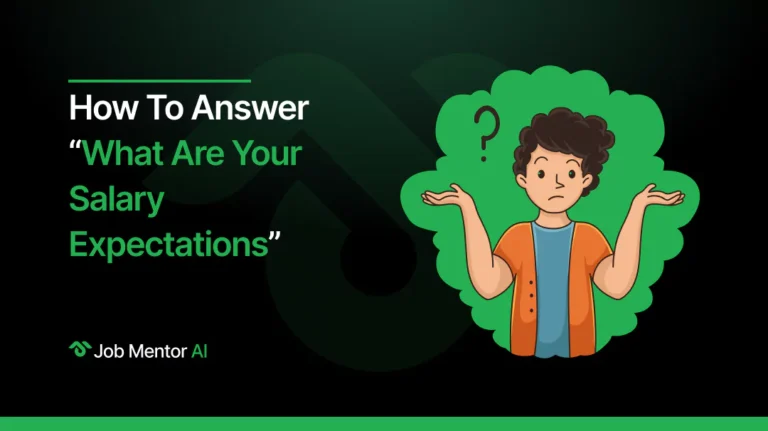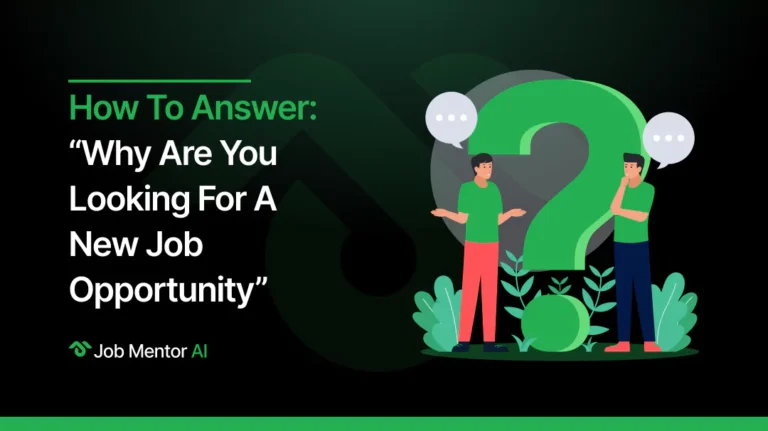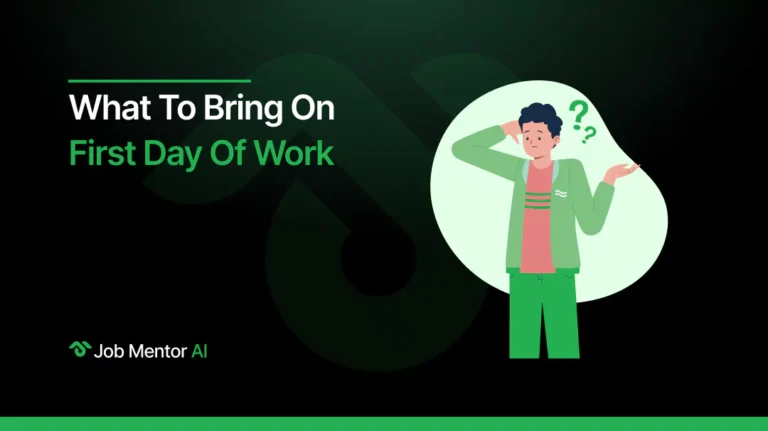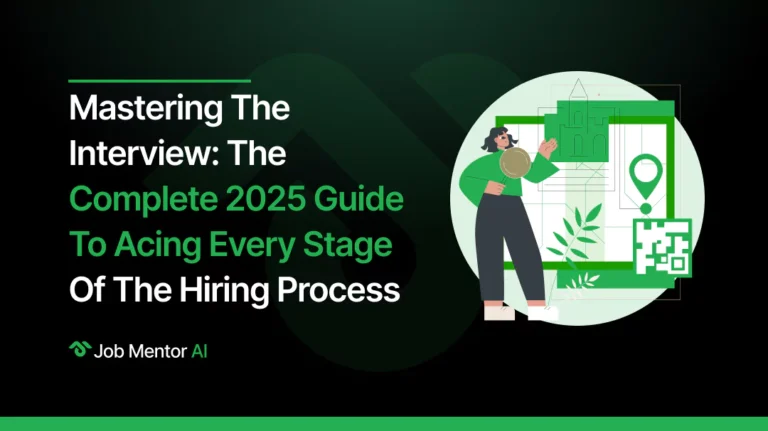Mastering the Interview: The Complete 2025 Guide to Acing Every Stage of the Hiring Process
- Published
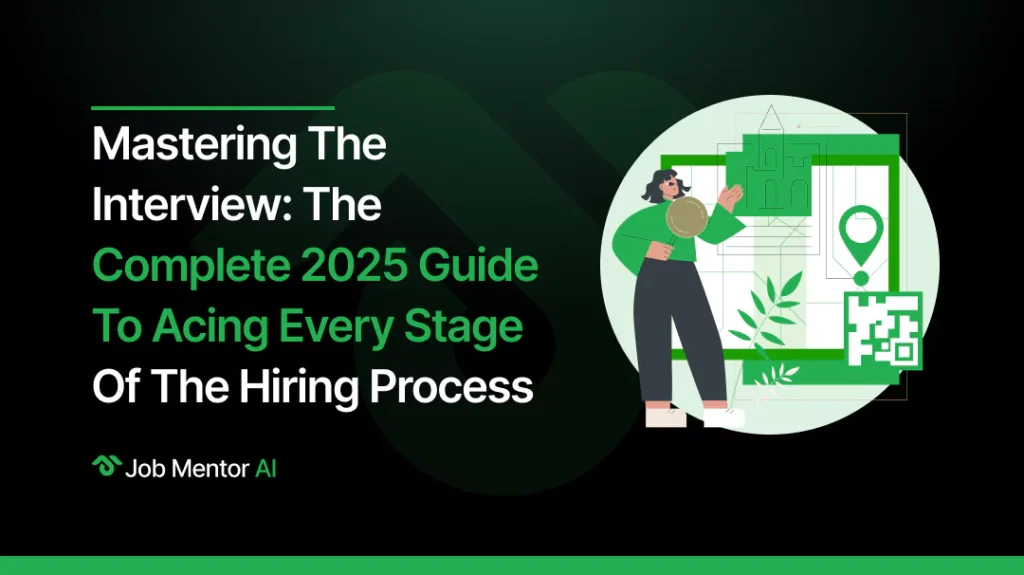
In 2025, landing your dream job takes more than just a polished resume. Employers are looking for candidates who can showcase strong communication skills, confidence, and the ability to adapt under pressure. A job interview is your chance to prove you’re the right fit, and preparation is the key to success.
This complete guide walks you through every stage of the interview process from the first email to your final handshake and follow-up. Throughout, you’ll find links to in-depth resources so you can dive deeper into each topic.
Navigating Different Interview Formats
Not all interviews follow the same format, and each one demands a slightly tailored strategy:
- Phone interviews require clear communication and a quiet environment. Practice speaking confidently and ensure you’re ready to answer common questions that come up during phone interviews.
- Second interviews often dive deeper into technical or role-specific topics. Be prepared to demonstrate your expertise and respond to more advanced interview questions for second interviews.
- Informal interviews may feel casual, but they still carry weight in hiring decisions. Approach them professionally and understand the purpose behind an informal interview.
- On-demand video interviews let employers screen candidates at their convenience. Present yourself confidently and stay focused when responding to prompts in on-demand interviews.
Part One: Preparing Before the Interview
Top Good Qualities for a Job That Employers Want in 2025
Employers in 2025 look beyond technical skills and focus on key attributes. Some of the most valued good qualities for a job include:
- Adaptability: Ability to adjust quickly to new situations and challenges.
- Communication Skills: Clear, professional, and effective verbal and written communication.
- Problem-Solving: Creative and logical thinking to overcome obstacles.
- Emotional Intelligence: Understanding and managing your emotions and those of others.
- Strong Work Ethic: Reliability, dedication, and willingness to go the extra mile.
- Growth Mindset: Openness to learning and continuous self-improvement.
- Creativity: Bringing fresh ideas and innovative approaches to the job.
Highlighting these in your answers helps demonstrate that you fit the employer’s ideal profile.
Highlighting these traits during your interview shows you’re the ideal candidate.
How to Prepare for a Job Interview
Effective preparation involves:
- Researching the Company: Learn about its mission, values, recent projects, and competitors.
- Understanding the Role: Know the job description, key responsibilities, and required skills.
- Practicing Common Questions: Prepare thoughtful answers to typical interview questions.
- Learning About the Interview Format – Whether it’s in-person, a panel, or you’re wondering how to prepare for a phone interview, knowing the format helps you prepare accordingly.
- Knowing Your Interviewers: Research who will be interviewing you, if possible.
This preparation shows genuine interest and builds your confidence.
How to Respond to an Interview Request
When you get an interview invite:
- Respond Quickly: Within 24 hours is best.
- Express Gratitude: Thank the employer for the opportunity.
- Confirm Details: Date, time, location or virtual meeting link.
- Ask Questions: Clarify anything you’re unsure about.
- Use Professional Tone: Polite and enthusiastic language.
Timely and clear responses reflect your professionalism.
Sending a well-crafted interview email reply shows your professionalism and sets a positive tone from the start.
What to Wear for a Job Interview
Choose your outfit based on:
- Company Culture: Formal business attire is often expected in corporate settings, while business casual fits better with startups. Understanding the right interview dress attire can help you make a confident first impression.
- Fit and Cleanliness: Clothes should be well-fitted and freshly laundered.
- Colors and Accessories: Opt for neutral, non-distracting colors and minimal accessories.
- Grooming: Neat hair, clean nails, and fresh breath are essential.

Most Needed Last Minute Interview Tips
Right before your interview:
- Confirm Interview Details: Time, place, or virtual link.
- Prepare Your Outfit and Materials: Resume copies, portfolio, notepad, pen.
- Review Key Points: Your skills, experiences, and questions.
- Practice Relaxation: Deep breathing or visualization.
- Get Enough Sleep: Rest well the night before.
- Eat a Balanced Meal: Avoid heavy or sugary foods.
- Arrive Early: Aim for 10-15 minutes ahead.
- Stay Positive and Confident: Keep a can-do attitude.
These last-minute interview tips are designed to help you stay calm and ready to perform your best.
Part Two: Performing During the Interview
How Early to Arrive for an Interview
Arriving on time is one of the simplest but most powerful ways to make a positive impression. Showing up early signals respect for the interviewer’s schedule and suggests you’re reliable and organised. However, arriving too early can sometimes cause awkwardness or inconvenience for your interviewer, so timing is important.
- Plan to arrive about 10 to 15 minutes before your scheduled interview time.
- Check your route in advance and allow extra time for possible delays like traffic or parking.
- Use any extra time to collect your thoughts and relax before the interview starts.
How to Make a Great First Impression
Making a good impression starts within seconds, and your body language and attitude set the tone for the entire interview. Small gestures such as a confident walk or a warm smile can create an immediate connection and put both you and the interviewer at ease.
- Enter the room with a confident posture and steady eye contact.
- Offer a firm handshake while smiling naturally.
- Speak clearly and listen attentively from the start.
- Dress professionally to match the company culture.
How to Introduce Yourself in an Interview
Your self-introduction is your first verbal opportunity to establish credibility and relevance. A well-crafted introduction helps the interviewer quickly understand your background and how you fit the role. Often, this moment begins with the common interview question: “Tell me about yourself“.
- Start by stating your name and current role or field of expertise.
- Briefly summarise your key skills and achievements related to the job.
- Explain why your experience makes you a strong fit for the position.
- Keep your introduction concise and practice it so it feels natural.
How to Handle Stress and Pressure
Interviewers want to see how you perform when things get challenging. Your ability to manage stress effectively shows emotional intelligence and readiness for the job’s demands. One commonly asked interview question is how do you handle stress and pressure, and answering it well can set you apart.
- Share a real example where you remained calm under pressure and resolved a difficult situation.
- Discuss techniques you use to manage stress, such as prioritising tasks or taking short breaks.
- Highlight any positive outcomes or lessons learned from stressful experiences.
- Show that you view pressure as an opportunity to demonstrate your resilience.
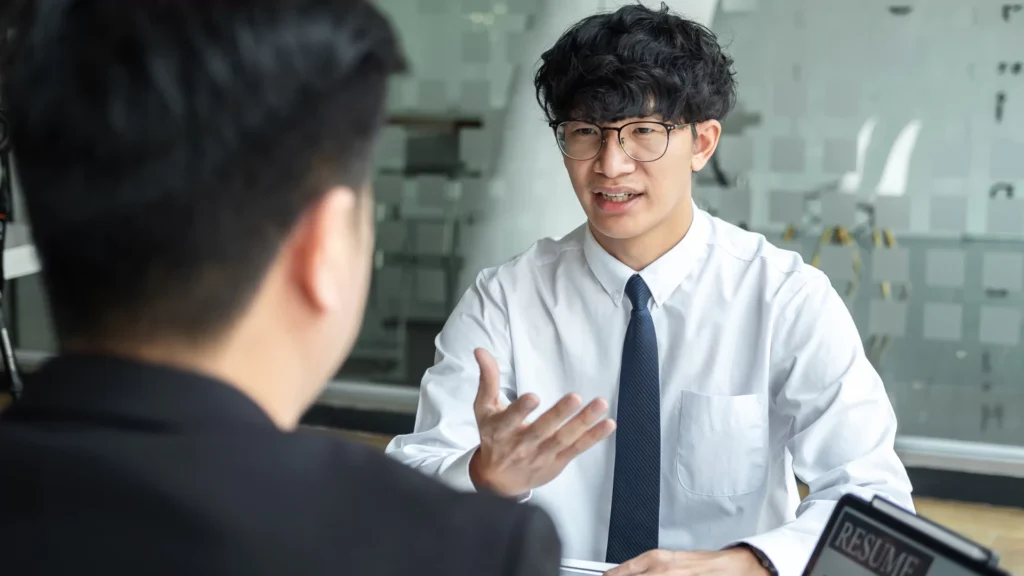
Answering Common & Tough Questions
Interview questions range from straightforward to complex and are designed to assess your skills, personality, and problem-solving ability. Preparing for a variety of questions will boost your confidence and help you respond naturally.
Common Group Interview Questions
Group interviews Questions show how well you collaborate and communicate in a team. Here are some examples you might encounter:
- Tell us about a time you worked successfully on a team project.
- How do you resolve disagreements within a group?
- What role do you typically take in team settings?
- How do you encourage others to share their ideas?
- Describe a time when your team met a difficult deadline.
- How do you balance your responsibilities with helping teammates?
Icebreaker Interview Questions
These types of questions are great for easing into the conversation and helping both you and the interviewer feel comfortable. If you want to see examples, you can explore common Icebreaker Interview Questions that often come up at the start of interviews, like:
- What motivated you to apply for this role?
- How would your colleagues describe you?
- What do you enjoy doing outside of work?
- Share something interesting about yourself.
- How do you usually spend your weekends?
- Have you read or watched anything inspiring lately?
Creative Interview Questions
Used often for creative roles, creative interview questions assess your originality and thinking process. If you’re curious about the types of prompts you might face, you can check out some common Creative Interview Questions. Examples include:
- How would you explain a complicated concept to a non-expert?
- If you could improve one aspect of our company, what would it be?
- Describe an innovative solution you developed to solve a problem.
- Tell me about a time you took a creative risk that paid off.
- How do you stay inspired and generate new ideas?
- If you had unlimited resources, what project would you pursue?
Tough Interview Questions
Some questions during an interview can be challenging because they require honesty and self-awareness. Preparing for tough interview questions like these can help you respond confidently:
- What is your biggest weakness, and what are you doing to improve it?
- Tell me about a failure and what you learned from it.
- Why are you leaving your current job?
- Why should we hire you instead of another candidate?
How to End an Interview as a Job Candidate
Closing an interview effectively can leave a lasting positive impression. It’s your opportunity to show enthusiasm and professionalism one last time.
- Thank the interviewer genuinely for their time.
- Reaffirm your interest in the role and the company.
- Briefly recap why you’re a strong fit for the position.
- Ask about the next steps in the hiring process to demonstrate eagerness.
- Leave confidently, maintaining good body language until the very end.

Smart Questions to Ask Hiring Managers
Asking smart Interview questions to the hiring manager is a signal that you’re well-prepared and truly interested in the role. It also helps you decide if the company is a good match for you.
- What are the main goals for this role in the next 6 to 12 months?
- How do you define success for the person in this position?
- Can you tell me about the team I’ll be working with?
- What opportunities for growth and development does the company offer?
- How would you describe the company culture?
- What challenges is the team currently facing?
Part Three: After the Interview
The interview ends when you leave, but your actions afterward play a key role in securing the job. Proper follow-up and thoughtful communication can leave a positive, lasting impression on employers.
How to Write a Thank-You Email After an Interview
Send a timely, polite thank-you email to express gratitude and reinforce your interest after the interview.
- Send your thank-you email within 24 hours to demonstrate professionalism.
- Express genuine appreciation for the opportunity to interview.
- Mention specific discussion points to personalise your message.
- Reaffirm your interest in the position and company.
- Keep the email concise and courteous.
- See a well-structured thank you letter after an interview example for reference.
What To Do After an Interview
Follow up thoughtfully and stay engaged to keep your candidacy strong and show professionalism in the period after an interview. Respect the interviewer’s timeline before following up.
- Respect the interviewer’s timeline before following up.
- Send a polite follow-up email expressing continued enthusiasm.
- Use this message to clarify next steps or ask lingering questions.
- Avoid multiple follow-ups to prevent appearing impatient.
Part Four: Perfecting Your Skills with Practice
Why Mock Interviews Matter
Mock interviews help build confidence and improve your interview skills by simulating real scenarios and providing valuable feedback before the actual interview.
- Build confidence by rehearsing your responses.
- Identify strengths and areas to improve.
- Reduce nervousness before the actual interview.
- Receive helpful feedback to refine your skills.
- Understanding the importance of mock interviews shows how practice sharpens your performance.
Types of Mock Interviews
Different mock interview types focus on various skills and formats, so choosing the right one aligns your practice with your career goals and interview expectations.
- Phone mock interviews to practice tone and clarity without visuals.
- Panel mock interviews to get used to multiple interviewers.
- Behavioral mock interviews focused on your past experiences.
- Technical mock interviews for role-specific skills.
Choosing the right types of mock interviews helps target your preparation effectively.
Conclusion
Mastering the interview process doesn’t happen overnight; it’s a journey that requires careful preparation, practice, and ongoing learning. AI Interview Assistant can support you in building the confidence needed to excel at every stage of the interview. Each moment is your chance to showcase your skills, personality, and fit for the role.
Remember, thorough preparation, smart practice such as mock interviews, and thoughtful follow-ups make a significant difference in standing out from other candidates. Take advantage of the full range of interview tips available to you, and you’ll be well on your way to landing your dream job.
Table of Contents
Frequently Asked Questions
What are some last-minute interview preparation tips?
You can quickly confirm the interview time and link, lay out your outfit and resume, review two to three concise achievement examples tied to the role, test your device and internet, do a brief breathing exercise, and join the call or arrive 10–15 minutes early.
What are the steps in the hiring process?
Most hiring flows follow these stages:
- Apply
- Recruiter / HR screen
- Technical screen (coding test, live interview, or take-home project)
- On-site or panel interviews (system design, behavioral)
- Final hiring-manager round
- Offer, negotiation, background checks, and onboarding
What qualities do employers value most in 2025?
The top qualities employers value the most are:
- Adaptability
- Clear Communication
- Problem-Solving
- Emotional Intelligence
- Growth Mindset
- Creativity
- Solid Technical Skills
What should I wear to a job interview?
You can match the company culture: wear formal business attire for conservative organizations and business casual for most tech teams; choose clean, well-fitted, neutral pieces with minimal accessories. For video interviews, check framing/background, avoid busy patterns, and make sure your top layer is camera-ready.
How should I respond to an interview invitation email?
Reply within 24 hours with a polite, professional tone, thank them, confirm the date/time and location or virtual link, restate that the time works (or give your availability), and ask one brief logistical question only if needed.
How can I handle stress and pressure during an interview?
You can handle stress by pausing and breathing, breaking problems into clear steps, narrating your thought process, asking clarifying questions, and showing how you’d iterate, interviewers value calm reasoning over perfection.
What should I do after an interview?
Send a brief thank-you email within 24 hours referencing a specific point, reaffirm interest, offer follow-ups (code samples/references), and send one polite status follow-up only if the given timeline passes.
How can I make a strong first impression in an interview?
Be on time, greet confidently, maintain good posture and eye contact, listen actively, and in technical rounds start by restating the problem and confirming assumptions.



